Deeper defence ties vital to counter China’s influence, says Liz Truss
British Foreign Secretary Liz Truss warns of a world of increased aggression and an unhealthy economic dependency on China.
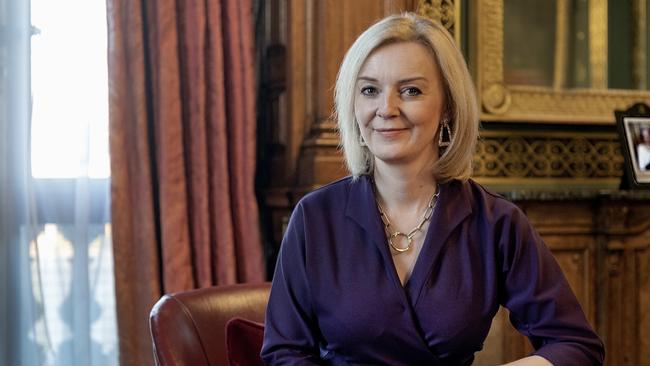
British Foreign Secretary Liz Truss says defence ties with Australia will continue to deepen, with work on a mutual access defence agreement under way, as she warns of a world of increased aggression and an unhealthy economic dependency on China.
In an interview with The Australian before a four-day visit to meet Foreign Minister Marise Payne – and with her government in crisis over Prime Minister Boris Johnson’s leadership – Ms Truss said trade and investment were at the core of her thinking to build a “network of liberty”.
“I see Australia absolutely crucial as part of this alliance in favour of freedom and democracy. Australia has led the way” she said.
Ms Truss did not rule out a shift in approach to the delivery of Australia’s submarines to a more collaborative development by the three AUKUS parties rather than a choice of Britain’s Astute-class or America’s Virginia-class.
She is in Australia for the first AUKMIN talks since 2018, a meeting that will set a clear program and build on the profound shift in strategic posture in AUKUS that seeks to rebalance China’s influence in the region.
Importantly, Britain is already forging deeper economic and security ties with allies Japan, India and Indonesia as part of its Indo-Pacific tilt.
The fact that Britain’s Foreign Secretary, who also took on the Brexit portfolio recently, is committing four days for a one-stop trip to Australia reflects the priority Britain now gives to the Indo-Pacific region.
At home, Ms Truss has her hands full with NATO and Ukraine, Brexit and the Northern Ireland protocol and the “partygate” scandal that threatens to topple Mr Johnson.
The woman who some believe could be prime minister within the year said Mr Johnson would not only stay the course, he would also win the next election.
“The Prime Minister has apologised for what has happened and clearly mistakes were made,” she said. “I am of the view that he is doing a fantastic job.”
She points to the vaccine and booster programs and decisions to keep the economy open, most recently through Christmas.
“We are now seeing the UK economy really motoring – that is down to the decisions of our Prime Minister,” Ms Truss said.
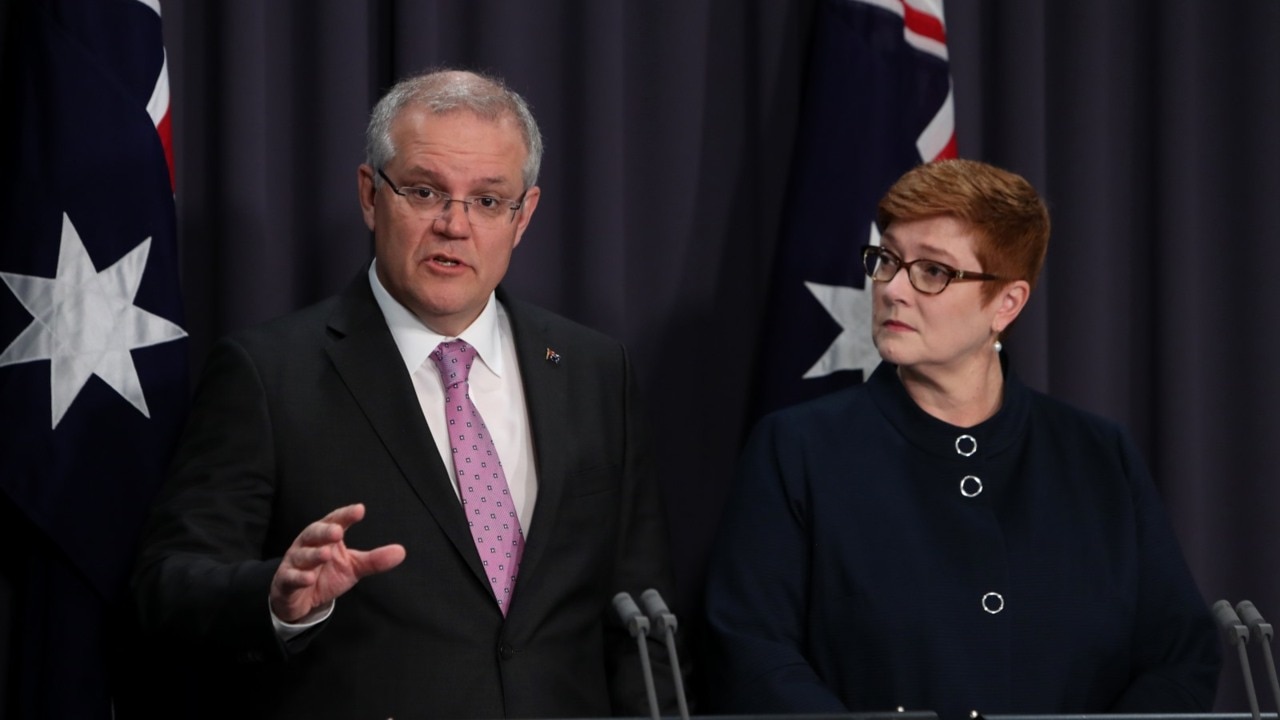
But what if the Prime Minister were to fall? “He won’t. Let me be clear, he won’t. I am completely supportive of the Prime Minister.
“He will fight the next election for the Conservative Party. And he will win it as well.”
And no one, she said, was a bigger supporter of Australia than Boris Johnson.
In Australia, Ms Truss will use meetings with Senator Payne and Defence Minister Peter Dutton to set a clear program and build on the shift in strategic posture in AUKUS that seeks to rebalance China’s influence in the region.
“We are facing a world of increased aggression” Ms Truss said.
“We see Russia increase the number of tanks on the border with Ukraine and conducting destabilising cyber attacks.
“We see increased activity of economic coercion by China, most recently on Lithuania, and also Australia has been affected by Chinese economic coercion. So we are seeing a world in which countries are using economic pressure, they are using security pressure and they are using technology to try to undermine freedom and democracy.”
Ms Truss warned of an unhealthy strategic vulnerability in many countries, citing Europe’s dependency on Russian gas and a growing economic dependence on China in the Asia-Pacific region with developing countries often lured with strings-attached investment. “In this type of job, you can become reactive to events,” she said. “But you’ve got to ask, why are we in this situation with Russia? It is because there hasn’t been enough done for 20 years so Vladimir Putin feels emboldened. You have to do the proactive stuff as well. You have to make time for it – that’s my view.”
After nearly 50 years, Ms Truss said Global Britain had again found its voice. That voice would be welcomed by the Australian government. Concern about the growing influence of China in the region is mutual and Australia had been punished by China for leading the pushback on Huawei and calling for a global inquiry into the origins of the virus in Wuhan.
Ms Truss presents confidently and comfortably in the imposing office of Foreign Secretary. As Britain’s longest-serving cabinet minister in the government, her easy manner explains in part why at grassroots level she remains, by a country mile the most popular Tory minister.
The daughter of a maths teacher, she is an unapologetic anti-woke free-trading neoliberal. At Oxford University in the 1990s, she had Australian Don Markwell as a tutor.
As trade secretary until September last year, it was Ms Truss who drove the free-trade agreement with Australia, pushing back against entrenched Eurocentric views of Whitehall public servants and working closely with Australian ministers Simon Birmingham and Dan Tehan and in London, George Brandis. “He is a fantastic high commissioner” she said.
On defence, Britain has two patrol boats in the Indo-Pacific region for five years and the Queen Elizabeth aircraft carrier has been to Japan and the South China Sea. There is great interest in Australia in what further access might be on the table.
Britain is negotiating a mutual access agreement with Japan and working more closely on security. A reciprocal access agreement for closer defence co-operation between Australia and Japan was agreed earlier this month.
Asked whether Britain and Australia would also have a mutual access defence agreement, Ms Truss said: “We are working on that with Japan and we have, I think, similar discussions in the works with Australia as well. We are really working on those closer co-operations with partners across the region.”
Four months into the job, she took over as Foreign Secretary as the AUKUS strategic alliance was announced. “I think it was the day I moved in. I can’t claim full credit for that” she joked.
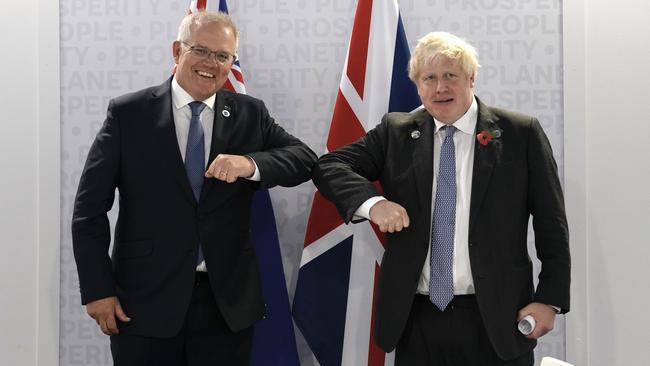
Did she know anything about AUKUS when it was being mooted at the G7 talks in Cornwall last June? “It was all kept very, very secret. I’ve always been of the view we should be doing more with Australia and it’s a fantastic agreement to be taking forward.”
Expect plenty of interest in the AUKUS nuclear-powered submarine project after the cancellation of Australia’s $90bn contract with the French. This week, Ms Truss will visit the BAE shipyards in Adelaide where Hunter-class frigates based on a British design are being built.
Speculation on whether Australia will end up with a British or American submarine continues, but given a 20-year lead time, there is quiet talk in Defence circles of a different approach, perhaps more akin to the Joint Strike Fighter, with all AUKUS parties working to develop IP together.
Ms Truss did not rule out such an option. “There are discussions going on as to exactly how to deliver that,” she said. “Our intention is closer industrial collaboration with Australia. We also have closer industrial collaboration on a number of projects in the US. The JSF is one of those.
“But it is also about much closer technological collaboration because this is where a lot of the battle for the future will be fought. It won’t just be fought in traditional defence. It will be in cyber space, the use of quantum technology, and of artificial intelligence. These are the types of areas where do want AUKUS to go very deep.”
Ms Truss had a distinctly new take on British foreign policy set out in the 2021 Integrate Review, laid bare in her speech to the Tory Party conference just after she was made Foreign Secretary.
She will use trade and investment policy as a vector to extend British influence, a new trading order at the heart of shared values. The UK-Australia FTA is the showcase agreement for Ms Truss to pitch Britain’s credentials as a champion of free trade to build influence in the Indo-Pacific. “We now have control of our own trade policy, our defence and security policy, and our development policy. We can use all of those tools to promote the values we believe in (and) promote British business and enterprise.”
New Trade Secretary Anne-Marie Trevelyan is negotiating entry to the 11-member Trans-Pacific Partnership, the CPTPP Ms Truss hoped to achieve by the end of the year. Britain is a dialogue partner of ASEAN. It is a member of the Five Powers Defence Arrangements with Malaysia, Singapore, Australia and New Zealand. And Ms Truss has committed to a road map with Indonesia to deepen relationships.
“We want to work across the Asia-Pacific, particularly on maritime security where we think the UK can play a deeper role. We build a virtuous circle of countries who believe in rules, who want to see freedom and democracy thrive, increasing trade among ourselves, becoming less strategically dependent on non-market economies and those who don’t share our values.”

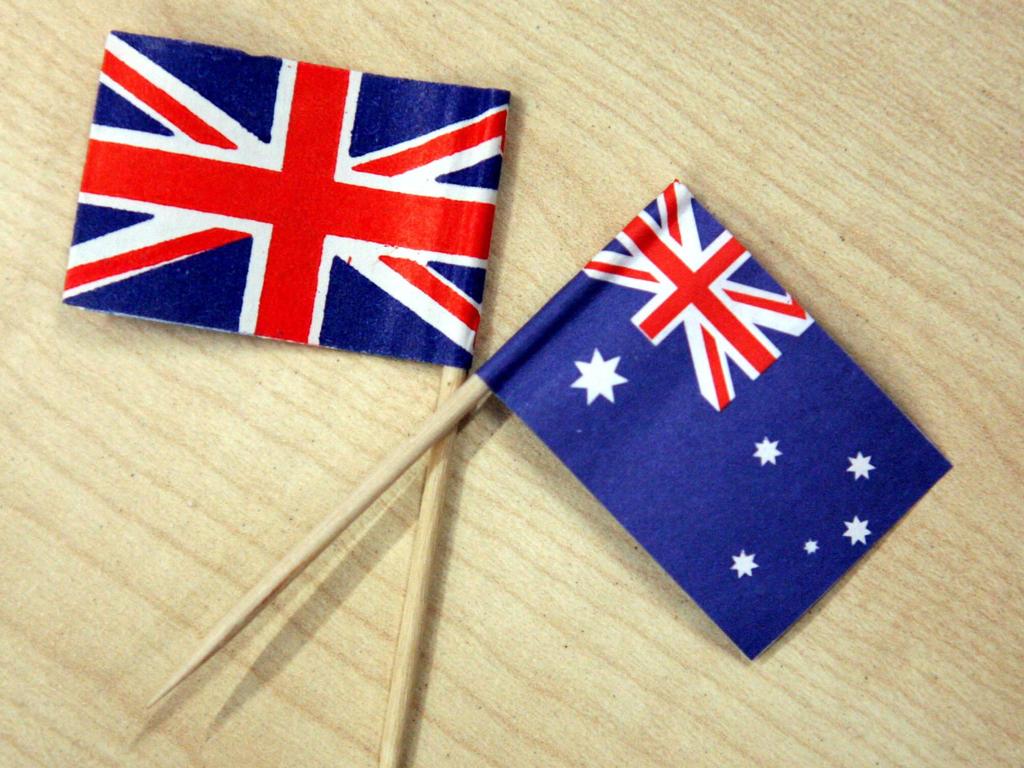

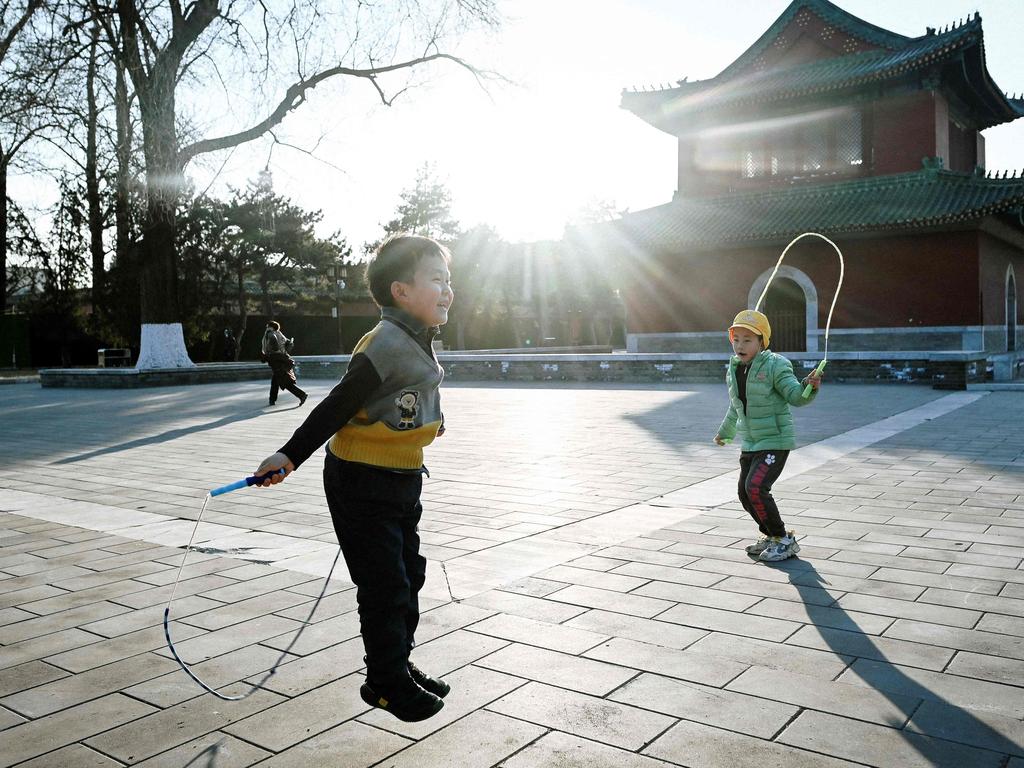



To join the conversation, please log in. Don't have an account? Register
Join the conversation, you are commenting as Logout